Fix: UiHost.exe Application Error – Unable to start correctly
The executable of McAfee’s Web Advisor browser extension is UiHost.exe, where UiHost stands for User Interface Host. The Web Advisor is responsible for many functions of the application. It is compatible with popular web browsers such as Mozilla Firefox, Google Chrome, Microsoft Edge, and others.
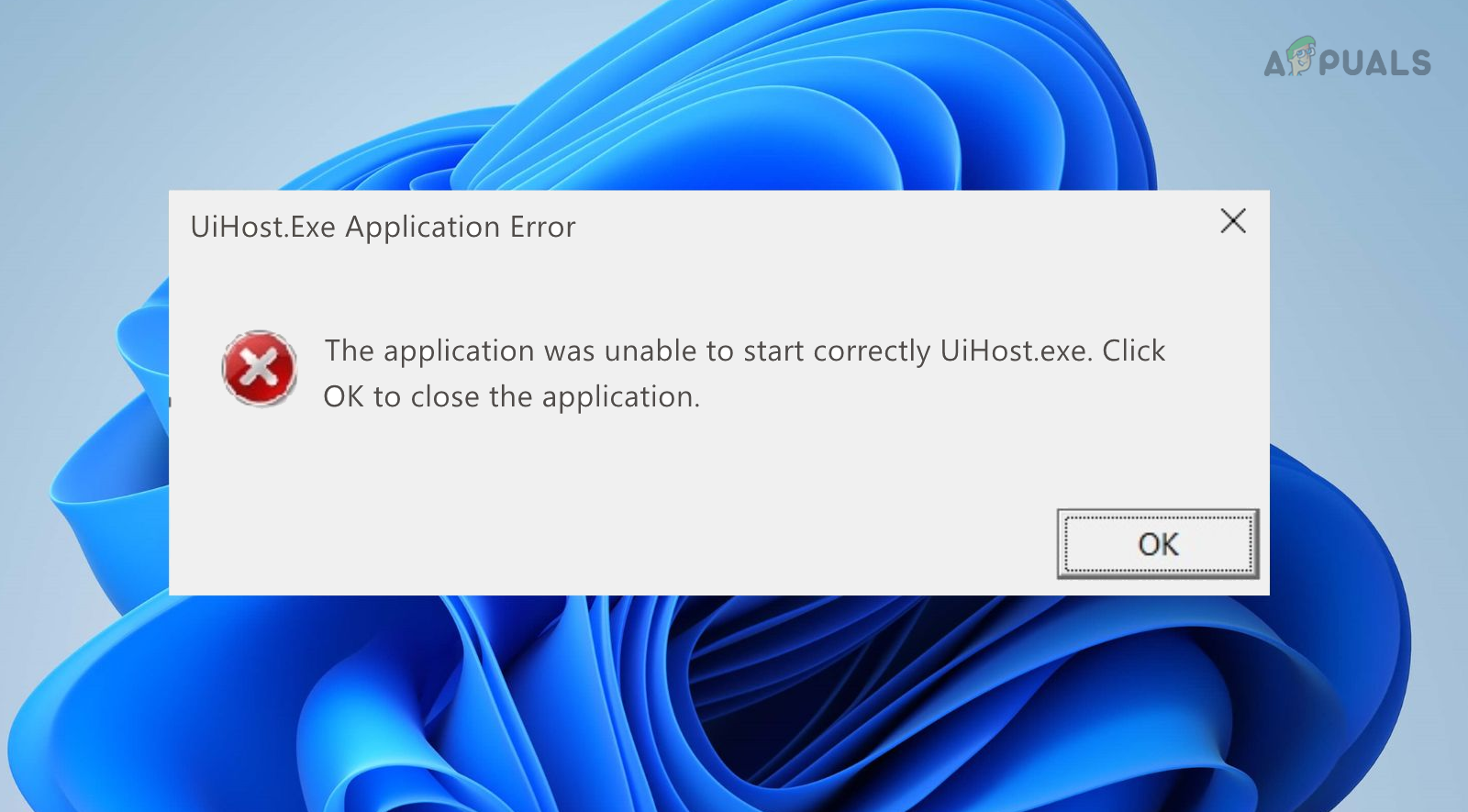
It protects you from sites that may contain malware or trying to do phishing scams. It may alert you against websites that might steal your information or data. It also provides Risk Ratings of websites by using McAfee’s threat database.
It is located in the installation directory of McAfee, usually, the following:
C:\Program Files\McAfee\WebAdvisor\UIHost.exe
How to Fix Applications Errors of UiHost.exe
Firstly, we will try to update the Web Advisor and if that fails, we will reinstall the McAfee Security Suite.
1. Update the McAfee Web Advisor
If McAfee’s Web Advisor is outdated, it will not be compatible with your browser or system and it will result in the Application Errors under discussion. This can be solved by updating the McAfee Web Advisor to the latest build.
To update the Web Advisor on Firefox, follow the steps below:
- Launch the Firefox browser and open its Menu.
- Select Manage Extensions and near the top, click on the Settings icon.
- Select Check for Updates and once updated, relaunch the browser. See if the UiHost.exe issue is resolved.
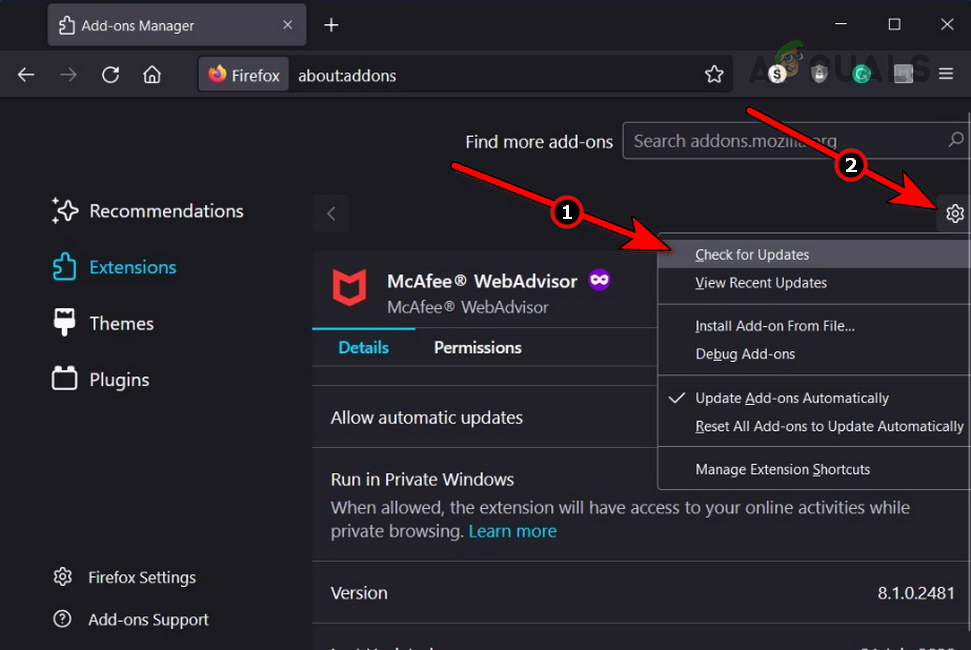
Check for Add-ons Updates on the Firefox Browser
2. Update the Browser
You will face UiHost Application Errors if the browser is outdated. This will make the browser incompatible with the Web Advisor. This can be fixed by updating the browser.
To update Chrome:
- Launch Chrome and open its Menu.
- Navigate to Help > About Google Chrome.
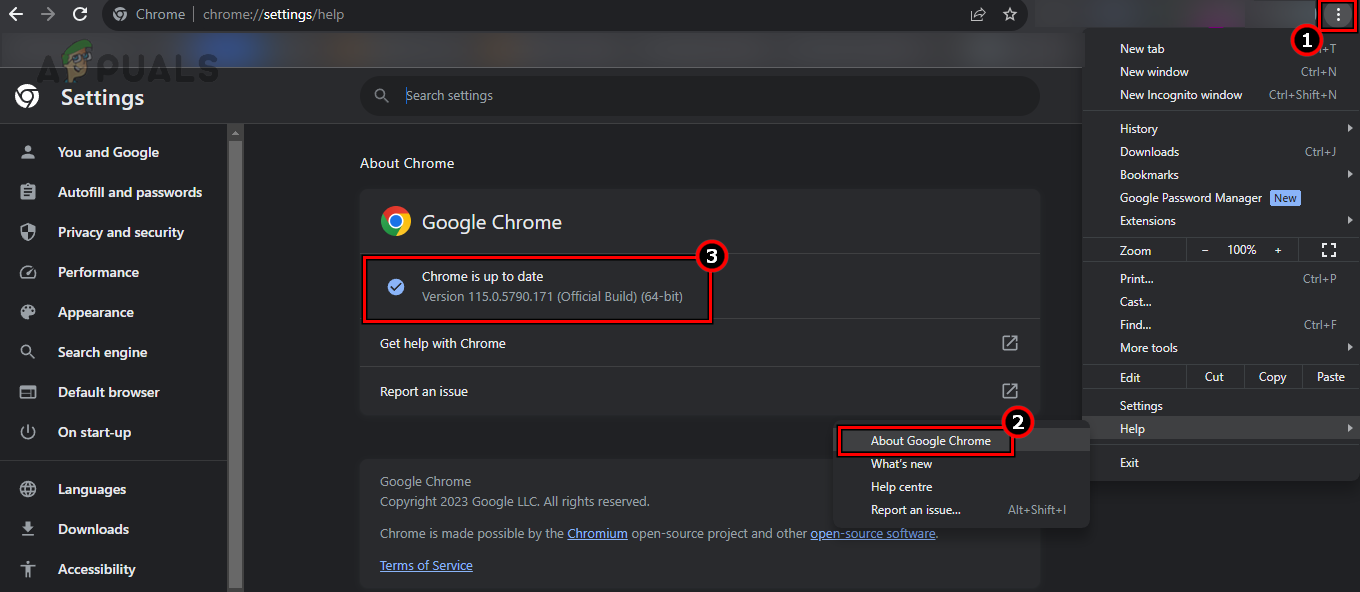
Update Google Chrome - Once updated, restart your system, and check if the UiHost issue is resolved.
3. Clean Boot Your System
If another application or service on your system is hindering the operation of the Web Advisor, the extension may crash in the execution and thus show the UiHost errors. In such a case, clean booting your system will do the trick.
- Perform a Clean boot on your Windows PC and see if the issue is resolved.
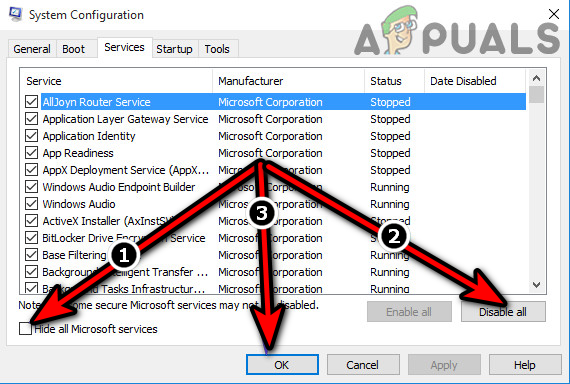
Clean Boot the Windows PC - If so, then one by one enable back the services or process disabled during clean boot and check which one was causing the issue.
4. Disable Other Browser Extensions
The Web Advisor extension will show application errors if another extension is not compatible with it. Here, disabling other browser extensions will solve the problem.
To do so on Chrome:
- Launch Chrome and open the Extensions menu.
- Select Manage Extensions and disable all the browser extensions except the Web Advisor.
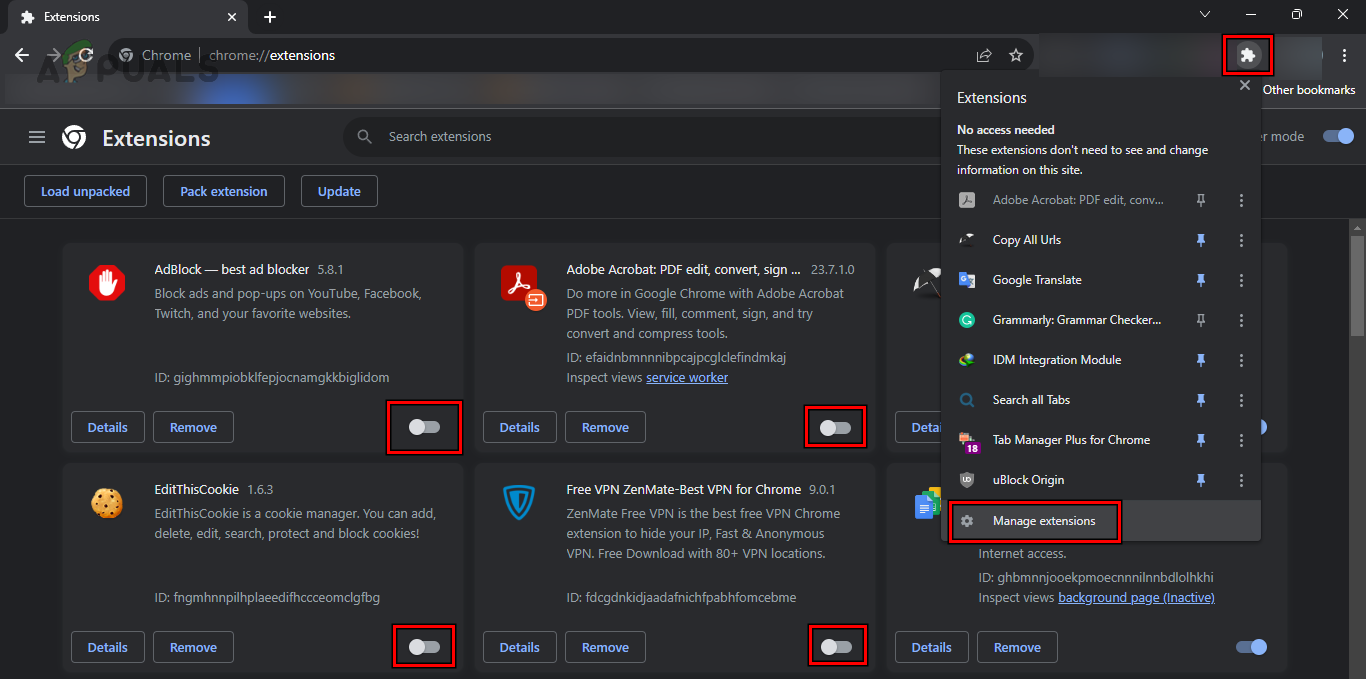
Disable Extensions on Chrome Except for the Web Advisor - Confirm if the issue is resolved. If so, one by one enable back the extensions to find out the problematic one.
5. Scan Your System
As the UiHost.exe file is a part of the security suite and if malware is trying to bypass it, then it can cause issues such as Application Errors. To overcome this, scan your system.
- Scan your system with McAfee antivirus.
- Use an online scanner to scan your system.
- Use an antimalware application (such as Malwarebytes) to thoroughly scan your system but make sure to exclude McAfee’s directories. You can also uninstall McAfee, scan through antimalware, and then reinstall McAfee. Verify if that clears the UiHost errors.
6. Check UiHost.exe File
As the file is crashing, let’s make sure that the file is a genuine McAfee file or is replaced by malware.
- Navigate to the following path (if UiHost is located in another location, then its probably a virus):
C:\Program Files\McAfee\WebAdvisor\UIHost.exe
- Right-click on UiHost and select Properties.
- Open the Digital Signature tab and check the Signer column.
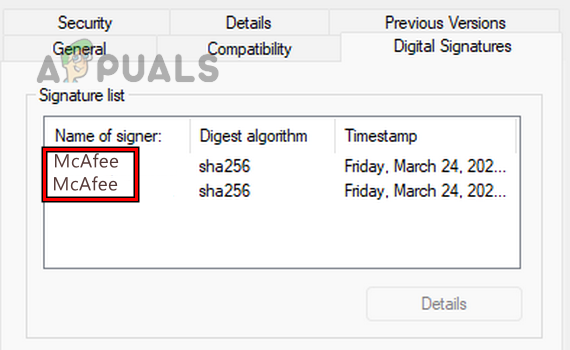
Check the Digital Signature of UiHost - It should show McAfee or McAfee LLC. If not, remove the file as it can be malware.
- Check the file size and it should be in some KBs. If the file size is larger, delete the file.
- You can also submit the file on online file scanners (such as VirusTotal) and check if the file is infected or not. If the file is infected, you should delete it.
7. Reinstall the McAfee Security Suite
You will get UiHost application errors on the Web Advisor if the installation of the McAfee Security Suite itself is damaged. Here, reinstalling the McAfee Security Suite will solve the problem.
To uninstall McAfee Suite on a Windows PC:
- Right-click Windows and open Apps & Features.
- Expand the Options of the McAfee product and click on Uninstall.
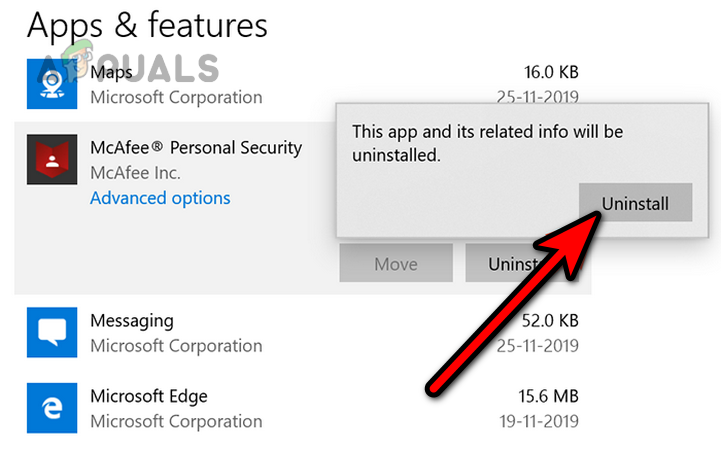
Uninstall McAfee on Windows - Follow the prompts on your screen to complete the uninstallation process.
- Once done, uninstall all the McAfee products shown and then uninstall the browser extensions.
- Restart the system and reinstall the McAfee security suite.
- Enable Web Advisor in the browser and check if this clears the application errors.
8. Reset or Reinstall Windows
If none of the above works, you may reset your PC to defaults or perform a clean installation of Windows on your system. Make sure to scan your system afterward. Reinstall the McAfee Security Suite and hopefully, that will permanently clear the issue. If the issue persists, contact McAfee Support.
 Reviewed by
Reviewed by 




